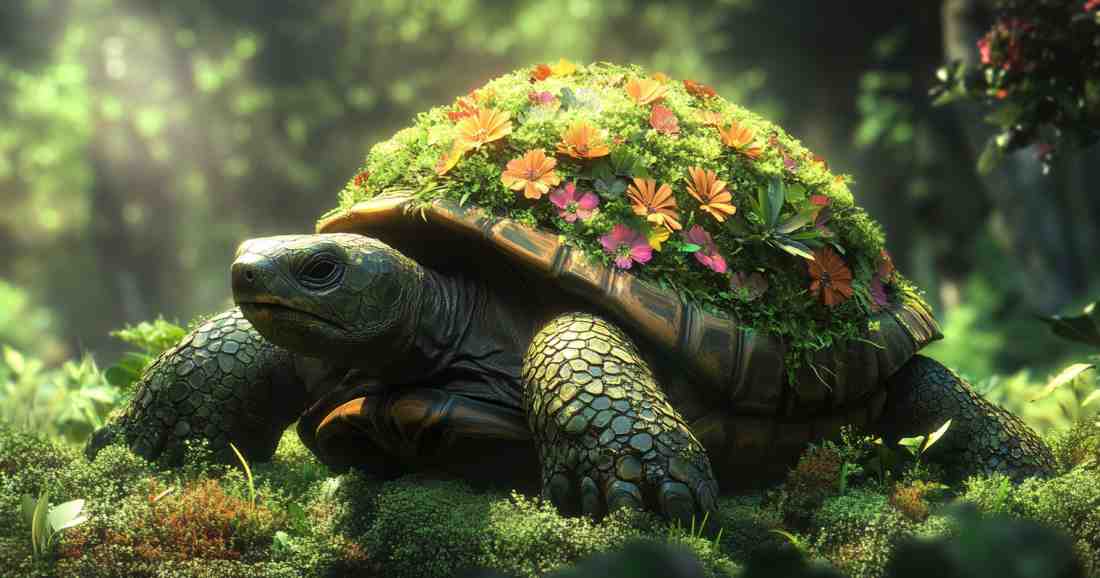
Learn which tortoise fits your lifestyle best in the informative and engaging What Tortoise Should I Get Quiz, Discover Your Perfect Shell Companion. What Tortoise Should I Get Quiz helps you find the ideal tortoise species based on your lifestyle, space, and care preferences. Tortoises, known for their calm nature, long lifespan, and unique personalities, vary greatly in size, habitat needs, and sociability. Are you looking for a small, easy-to-care-for tortoise like a Russian tortoise, or a larger, impressive species like a Sulcata? This quiz evaluates your habits, living space, and experience level to recommend the perfect tortoise for you.
Choosing the right tortoise involves understanding their size, lifespan, dietary needs, and habitat requirements. Some, like the Russian tortoise, are hardy and beginner-friendly, while others, like the Leopard tortoise, require more advanced care. Moreover, your climate, available space, and commitment to long-term care play significant roles in choosing the best tortoise companion. The What Tortoise Should I Get Quiz evaluates these factors to match you with the ideal shelled friend.
Exploring Popular Tortoise Options
Different tortoise species reflect unique care requirements, personalities, and environmental needs:
- Russian Tortoise: Small, hardy, and beginner-friendly. Ideal for indoor enclosures or small outdoor setups.
- Greek Tortoise: Calm, friendly, and adaptable. Best for moderate care and indoor or outdoor habitats.
- Hermann’s Tortoise: Playful, social, and resilient. Suitable for interactive owners with secure enclosures.
- Leopard Tortoise: Large, peaceful, and beautiful. Best for spacious outdoor setups in warm climates.
- Sulcata (African Spurred) Tortoise: Large, active, and long-lived. Ideal for experienced keepers with large outdoor spaces.
- Red-Footed Tortoise: Social, colorful, and tropical. Best for owners who can maintain higher humidity levels.
- Marginated Tortoise: Friendly, hardy, and moderate-sized. Suitable for outdoor enclosures with room to roam.
- Indian Star Tortoise: Stunning, shy, and delicate. Best for experienced keepers with controlled environments.
- Pancake Tortoise: Flat, agile, and unique. Ideal for owners seeking a small, active tortoise.
- Desert Tortoise: Hardy, long-lived, and independent. Perfect for warm, dry climates with outdoor space.
This quiz helps identify which tortoise species aligns with your lifestyle, space, and care capacity.
How Lifestyle Influences Tortoise Choice
Your daily routine, available space, and care preferences play a crucial role in choosing the right tortoise. Are you a beginner seeking an easy-to-care-for tortoise, like a Russian or Greek tortoise? Or do you enjoy advanced care, making a Sulcata or Leopard tortoise a great fit? Moreover, your climate—whether warm and dry or humid—affects which species will thrive in your environment. This quiz evaluates these factors to recommend your ideal tortoise match.
Habitat and Care Requirements
Tortoises vary significantly in their habitat and care needs:
- Small to moderate species: Russian, Greek, and Hermann’s tortoises thrive in indoor or small outdoor setups.
- Larger species: Leopard, Sulcata, and Desert tortoises need spacious outdoor enclosures.
- Tropical species: Red-footed and Indian Star tortoises require warm, humid environments.
- Unique species: Pancake tortoises enjoy rocky habitats, while Marginated tortoises prefer spacious outdoor runs.
This quiz assesses your living space, climate, and experience level to match you with the perfect tortoise species.
Fun Facts About Popular Tortoise Species
Did you know that Sulcata tortoises can grow over 100 pounds and live more than 70 years, making them a lifelong commitment? Moreover, Pancake tortoises are the fastest climbers among tortoises, thanks to their flat, flexible shells. Interestingly, Red-footed tortoises are known to recognize their owners and even enjoy gentle interaction. This quiz uncovers more fascinating facts while guiding your tortoise choice.
Practical Tips for Tortoise Ownership
Choosing the right tortoise involves more than preference—it’s about providing proper care for a long, healthy life:
- Choose the right enclosure: Small tortoises thrive in indoor habitats, while larger species need outdoor space.
- Maintain proper temperature and lighting: Most tortoises need UVB lighting and temperature gradients for health.
- Provide a varied diet: Leafy greens, vegetables, and occasional fruits suit most species.
- Plan for longevity: Many tortoises live 50+ years, so long-term care is essential.
- Ensure proper hydration: Even desert species need regular water access for hydration.
This quiz not only recommends the best tortoise for you but also offers practical tips for responsible ownership.
Take the What Tortoise Should I Get Quiz Now
Curious to find your perfect tortoise companion? The What Tortoise Should I Get Quiz offers an engaging way to match your lifestyle, space, and care capacity with the ideal shelled friend. Moreover, it provides practical insights into habitat setup, diet, and ensuring long-term health. Ultimately, this quiz empowers you to make an informed decision, ensuring both you and your tortoise enjoy a happy, healthy life together. Take the quiz now and discover which tortoise species is the perfect fit for you!
